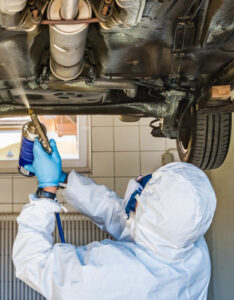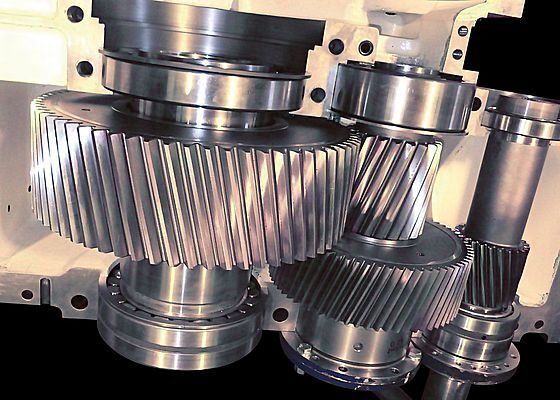Owning a vehicle comes with a great deal of responsibility. Regular maintenance is vital not only for ensuring the durability of your car but also for guaranteeing your safety on the road. But how do you keep track of everything? What are the essential maintenance tasks every vehicle owner should know? This guide will walk you through the most crucial car maintenance tips, helping you to become a more confident and informed car owner. 

1. Understand Your Owner’s Manual
Have you ever opened your owner’s manual? Many vehicle owners overlook this valuable resource, but it holds the key to understanding your car’s specific needs. The manual provides detailed information about maintenance schedules, recommended fluids, and specific features of your vehicle.Why is this important?
Following the guidelines in your manual ensures that you perform the necessary maintenance at the right intervals, thus preventing potential issues down the road. Ignoring these recommendations can lead to premature wear and tear or even costly repairs.2. Regular Oil Changes
Oil is the lifeblood of your engine. Over time, oil breaks down and loses its effectiveness in lubricating the engine parts. But how often should you change your oil?The general rule of thumb
Most manufacturers recommend changing your oil every 5,000 to 7,500 miles. However, this can vary based on your driving habits and the type of oil used. Do you drive in severe conditions, like extreme temperatures or heavy traffic? If so, more frequent changes may be necessary.How do you know when it’s time?
Look for signs like a change in oil color or texture, or an increase in engine noise. Regularly checking your oil level and condition can save you from serious engine problems.3. Tire Care: Rotation and Pressure
Did you know that your tires are the only contact your vehicle has with the road? Proper tire maintenance is essential for safety and fuel efficiency.What should you do?
- Regular Tire Rotation: Rotating your tires every 5,000 to 7,500 miles ensures even wear and extends their lifespan.
- Check Tire Pressure: Under-inflated tires can lead to decreased fuel efficiency and increased risk of blowouts. Check your tire pressure at least once a month and before long trips.
How can you tell if your tires need replacing?
Look for tread wear indicators or perform the penny test. Insert a penny into your tire’s tread; if you can see Lincoln’s head, it’s time for new tires.4. Brake System Maintenance
Your brakes are a critical safety feature, so regular maintenance is non-negotiable. How often do you think about your brakes?Signs that your brakes need attention
- Squeaking or Grinding Sounds: These noises often indicate worn brake pads.
- Vibrations: If your steering wheel shakes when braking, you may have warped rotors.
5. Battery Maintenance
A dead battery can leave you stranded, so how can you avoid this inconvenience?Simple tips for battery care
- Regular Inspections: Check for corrosion on the terminals and ensure connections are tight.
- Battery Life: Most batteries last 3 to 5 years. If your battery is nearing this age, consider getting it tested.
What should you do if your battery dies?
Jump-starting a car can be straightforward, but do you know the correct procedure? Always connect cables in the right order to prevent damage.6. Fluid Levels: Don’t Overlook Them!
Your car relies on various fluids to function properly. But how often do you check them?The key fluids to monitor
- Coolant: Prevents overheating; check levels regularly, especially before long trips.
- Transmission Fluid: Essential for smooth gear changes; should be checked at regular intervals.
- Brake Fluid: Low levels can lead to brake failure; make it a habit to inspect this fluid.
What happens if you neglect these fluids?
Ignoring fluid levels can lead to severe engine damage and costly repairs. Isn’t it worth a few minutes each month to ensure everything is up to par?7. Wiper Blades and Lighting
Visibility is crucial for safe driving. Are your wiper blades in good condition?Tips for wiper maintenance
- Replace wiper blades every six months to a year, or sooner if they leave streaks or miss spots.
- Regularly check headlights, taillights, and turn signals to ensure they are functioning properly.
How can you improve visibility during bad weather?
Consider using rain-repellent treatments on your windshield. This small investment can significantly enhance your visibility.8. Air Filter Replacement
Your vehicle’s air filter plays a significant role in engine performance. How often do you think about it?When should you replace it?
Most manufacturers recommend replacing the air filter every 12,000 to 15,000 miles. A clogged filter can reduce fuel efficiency and lead to engine problems.What are the signs of a dirty air filter?
If you notice decreased acceleration or unusual engine sounds, it might be time for a replacement.9. Keep Your Car Clean
It might seem trivial, but keeping your car clean can have long-term benefits. Why should you care about the exterior and interior of your vehicle?The benefits of cleanliness
- Paint Preservation: Regular washing prevents rust and paint damage.
- Interior Maintenance: Keeping the interior clean can prevent wear and tear, ensuring your car looks good for years to come.


